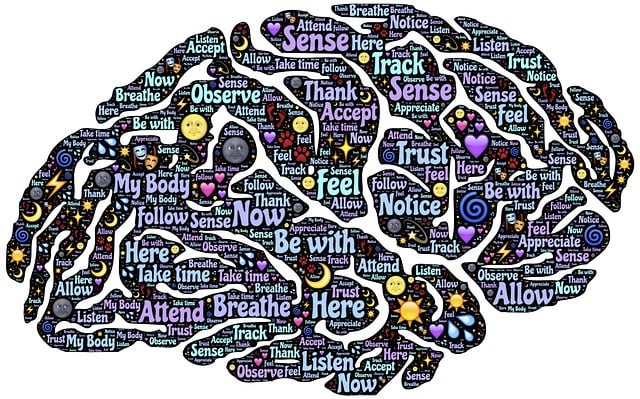Longmont Cognitive Processing Therapy (LCPT) is a revolutionary crisis intervention strategy that uses cognitive processing techniques to help individuals manage acute distressing events, leading to better emotional regulation and improved mental health outcomes. By focusing on reframing negative thought patterns and processing traumatic memories, LCPT facilitates a transformative journey towards mental wellness, incorporating cultural sensitivity and providing lifelong coping strategies. Practical strategies like LCPT, alongside public awareness campaigns, stress management workshops, and burnout prevention for healthcare providers, play crucial roles in community support and enhancing patient care.
In times of crisis, effective support is paramount. This article explores crisis intervention strategies, providing a comprehensive guide for professionals aiming to offer immediate assistance and facilitate long-term recovery. We delve into the foundational principles of understanding crisis intervention, highlighting the transformative power of Longmont Cognitive Processing Therapy (LCPT) as an innovative approach. Additionally, we present practical strategies for short-term management and lasting impact, equipping readers with valuable tools to make a significant difference during and after crises.
- Understanding Crisis Intervention: A Foundation for Effective Support
- Longmont Cognitive Processing Therapy: An Innovative Approach to Crisis Management
- Practical Strategies: Implementing Guidance for Short-Term and Long-Term Recovery
Understanding Crisis Intervention: A Foundation for Effective Support

Crisis intervention is a vital process aimed at providing immediate support to individuals facing significant emotional or psychological distress. It involves a structured approach to help people navigate and overcome their crises, focusing on safety, stability, and long-term recovery. This strategy is particularly crucial in situations where an individual’s well-being is at risk, such as during severe mental health episodes, traumatic events, or overwhelming life stressors.
Longmont Cognitive Processing Therapy (LCPT) is a therapeutic approach that forms the foundation of effective crisis intervention. By assisting individuals in understanding and reframing their thoughts and perceptions during a crisis, LCPT empowers them to manage stress and mood effectively. This therapy guides clients towards mental health awareness, enabling them to develop coping mechanisms and enhance overall resilience. Through LCPT, individuals learn to process traumatic memories, challenge negative thought patterns, and adopt healthier perspectives, fostering better emotional regulation and improved mental health outcomes.
Longmont Cognitive Processing Therapy: An Innovative Approach to Crisis Management

In the realm of crisis intervention strategies, Longmont Cognitive Processing Therapy (LCPT) emerges as a game-changer in managing mental health emergencies. This innovative approach leverages cognitive processing techniques to help individuals navigate and overcome acute distressing events. By focusing on reframing negative thought patterns and enhancing emotional healing processes, LCPT facilitates a transformative journey towards mental wellness.
Incorporating cultural sensitivity in mental healthcare practice is a cornerstone of LCPT, ensuring that interventions are tailored to meet the unique needs of diverse populations. This therapy goes beyond traditional crisis management by addressing the underlying cognitive distortions that contribute to emotional turmoil. As discussed in various mental wellness podcast series production, LCPT’s holistic approach not only helps individuals cope with immediate crises but also equips them with lifelong coping strategies for future challenges, fostering resilience and overall mental health.
Practical Strategies: Implementing Guidance for Short-Term and Long-Term Recovery

In the realm of crisis intervention, practical strategies are key to guiding individuals toward both short-term and long-term recovery. One effective approach is Longmont Cognitive Processing Therapy (LCPT), which focuses on helping people make sense of their experiences and reframe negative thoughts. This therapy is particularly beneficial for processing traumatic events, enabling individuals to develop coping mechanisms that promote resilience. By fostering a safe and supportive environment, LCPT allows clients to explore their emotions, challenge distorted beliefs, and gain new perspectives, ultimately leading to improved mental well-being.
Complementing individual therapy, Public Awareness Campaigns and Stress Management Workshops organized by various organizations play a crucial role in community support. These initiatives raise awareness about crisis interventions, provide valuable resources, and offer practical tools for stress reduction. Moreover, Burnout Prevention Strategies for Healthcare Providers are essential, as they not only benefit the providers but also indirectly enhance patient care by ensuring professionals remain emotionally available and effective during crises.
In conclusion, crisis intervention strategies, such as Longmont Cognitive Processing Therapy, offer a robust framework for providing effective support during times of distress. By understanding the foundational principles and exploring innovative approaches like LCPT, professionals can guide individuals towards both short-term relief and long-term recovery. Practical strategies outlined in this article equip readers with valuable tools to navigate crises and foster resilient coping mechanisms.












